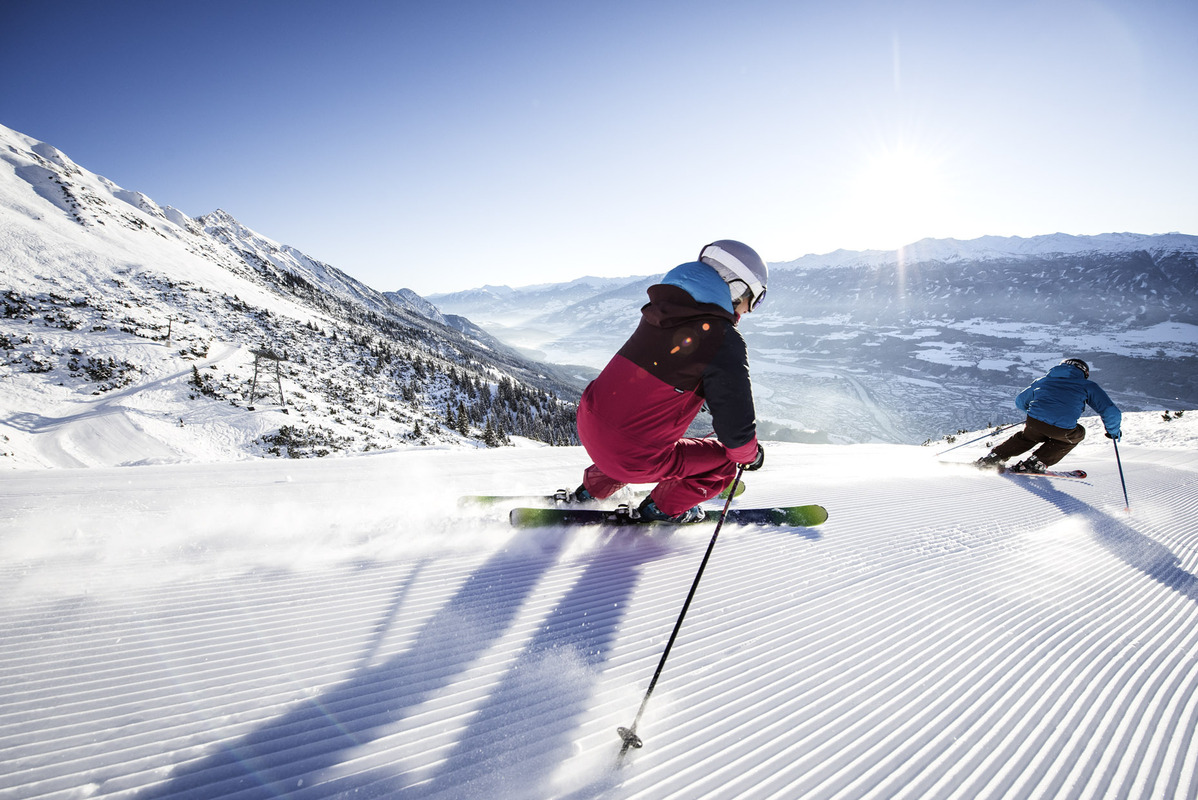Innsbruck pass allows tourists to ski and see

Chinese visitors are driving force behind new initiative

Innsbruck, the Austrian city that has twice hosted the Winter Olympics, has launched a world first ski plus sightseeing pass, with the city tourism board claiming the inspiration is partly drawn from the travel habits of Chinese tourists.
The all-new "SKI plus CITY Pass Stubai Innsbruck" offers visitors a unique skiing and sightseeing experience with just one ticket, connecting 13 diverse ski areas in the Stubai Valley and Innsbruck region with 22 attractions in and around the city.
Peter Unsinn, head of market management at Innsbruck Tourism, said the initiative came from the general trend in consumers who like to have more options and flexibility in skiing, particularly visitors from China.
"This is really a good tool for Asian guests and especially Chinese, because they're not so used to the skiing yet, and if they go to a destination I do not think they will choose for one week of total skiing," he said.
"The pass puts a completely different twist on a typical ski holiday. In the morning visitors can be on the slopes 3,000 meters above sea level and then, by the afternoon, soaking up the culture of historic landmarks and museums, or visiting other attractions including the Alpenzoo and Swarovski Crystal Worlds," he added.
The new program opens the doors to more than 300 kilometers of pistes and 111 different lifts to skiers and snowboarders, as well as the chance to marvel at the popular landmarks and attractions the region has to offer, all for just one single fee.
The pass has been hailed by tourism industry pundits as a very "logical development", to think of destinations in a broader scope, with a large variety of activities.
"It is not common to have such an offer yet," said Laurent Vanat, author of the International Report on Snow and Mountain Tourism. "But it makes a lot of sense for Innsbruck, as from this city you can reach many ski resorts–it is even surprising that such pass did not exist earlier. Adding a few 'urban' features in the pass makes it even more attractive for guests that do not only want to ski."
The number of skiers in China is growing quickly, with an estimated slope-going population of more than 13 million, according to the 2019 International Report on Snow and Mountain Tourism.
Ski culture is not widespread in China, and most Chinese skiers do not ski more than once per season with 80 percent being beginners, the report revealed, adding that skiing is more often consumed as a kind of entertainment product.
This trend has also been reflected in the traveling attributes of most Chinese tourists coming to Europe for skiing, who also look for other opportunities such as visiting new places, going shopping or just enjoying advantages of urban living, said Emanuel Lehner-Telic, Asia regional manager for the Austrian National Tourist Office.
"For Chinese tourists, the new pass might be the perfect offer to get a glimpse of alpine living: nature with sports activities and long cultural heritage with hearty food and beverage in the city," he added.
Oliver Sedlinger, a Beijing-based international tourism consultant at Sedlinger and Associates, said new generations of Chinese travelers seem to have increasingly 'hybrid' needs, different from the past - they look for more choice, convenience and flexibility, allowing them to combine different experiences and enjoy the best of two worlds.
"Some may still choose to stay in one ski resort for their whole visit, and others may wish to combine nature and outdoor with city life, which may also attract traditional city travelers to try out skiing," Sedlinger said.
"Experiences that were once separated now can be combined together and thereby offer new choices to the consumers. I think Innsbruck's initiative is a clever one, and we see this phenomenon in other regions too, for example in Switzerland in the cooperation between Swiss ski resort LAAX with Zurich City Hotels, so this could indeed be a long-term trend and attract specific parts of the growing market."
































